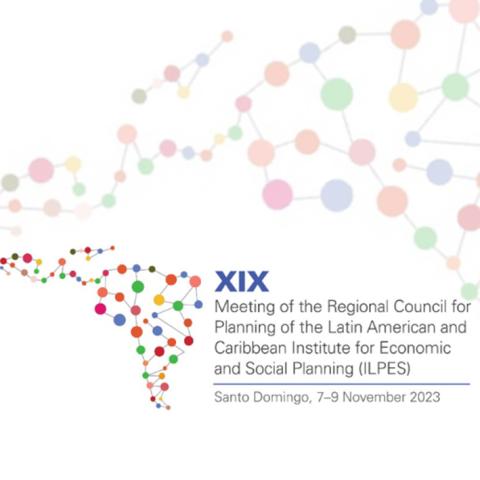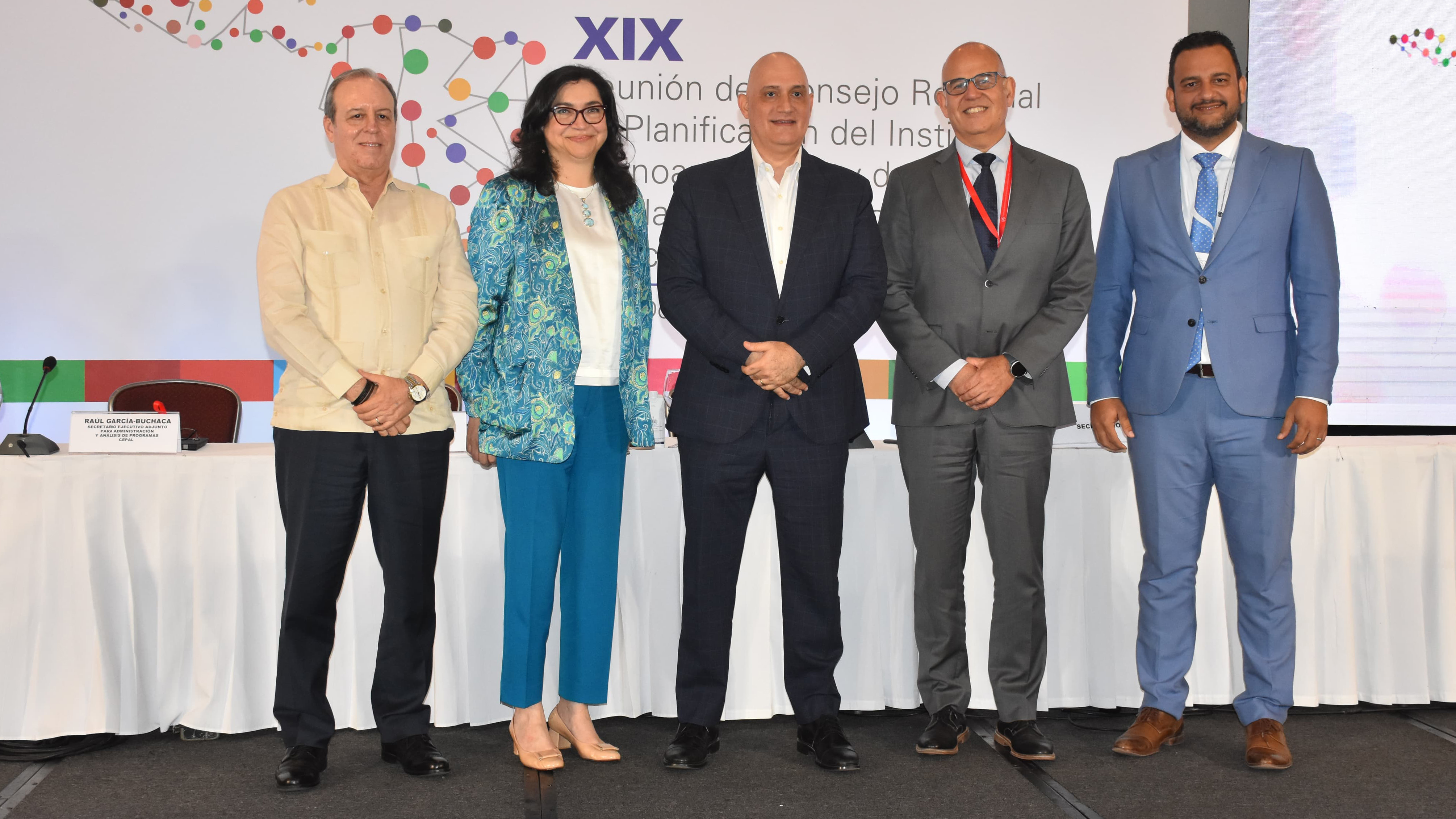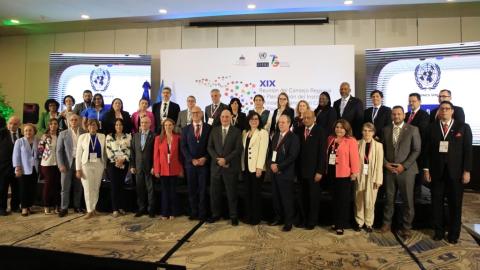Authorities approved today a proposal to move towards a regional agenda on governance of planning and public management for sustainable development, at the closing session of the Nineteenth Meeting of the Regional Council for Planning of the Latin American and Caribbean Institute for Economic and Social Planning (ILPES) of the Economic Commission for Latin America and the Caribbean (ECLAC), which concluded today in Santo Domingo, Dominican Republic.
The proposal – made by the Chair of the Regional Council for Planning’s Presiding Officers, led by the Dominican Republic – consists of four pillars: the dimension of the future in the framework of sustainable development, governance and resilient institutions, planning for comprehensive and coherent policies, and public value and a culture of continuous learning.
“We are obligated to respond to our populace, we are obligated to respond to our people, to improve their quality of life, and as the 2030 Agenda says, to leave no one behind,” the Minister of Economic Affairs, Planning and Development of the Dominican Republic, Pável Isa Contreras, affirmed as the meeting concluded.
He indicated that to attain these goals, countries must work in four areas: (i) accelerating growth and productive transformation; (ii) promoting social and territorial equality by strengthening the quality and coverage of public services, giving the State the capacity to achieve this; (iii) promoting more environmental sustainability while also accelerating the green transition; and (iv) reducing risks and building resilience in the face of the effects of climate change.
“That will not occur by itself, we must have quality public policies that lead our countries in that direction,” he underscored.
Meanwhile, Cielo Morales, Director of ILPES, emphasized that foresight is part of strategic thinking and is suited to serve planning, while planning is suited to serve territories.
“The culture of the future, the integration of young people in decision-making, open government and e-government, and resilient territorial development have important shared elements: they require a comprehensive and systemic approach, a long-term perspective in which multiple futures can be envisioned, and a cultural and institutional change that would share power with a multiplicity of actors to foster collaborative structures, a renewed governance and strengthened democracy,” she stated.
She added that having a regional agenda that would encourage working in networks, strengthening capacities for building robust information systems, and results-based management and that would support countries in sharing good practices, policy instruments, collaborative practices, and flexible and reticulate institutional structures, will be key for focusing the State’s efforts on more sustainable and productive development.
The high-level event – which took place on November 7-9 – was organized by ECLAC and the Government of the Dominican Republic, through the Ministry of Economic Affairs, Planning and Development. It drew the on-site participation of ministers, deputy ministers and heads of planning from 17 of the region’s countries, in addition to the virtual participation of authorities from five other countries.
In the meeting’s resolutions, the authorities recognized the importance of consistent and comprehensive public policy for strengthening the processes and instruments of planning for development and public management for the implementation of the 2030 Agenda for Sustainable Development in Latin America and the Caribbean. They also requested that ILPES maintain the modalities of applied research, technical cooperation and training to promote multi-stakeholder, multi-temporal, cross-sectoral and multi-level integration in the design and implementation of public policy.
In addition, they welcomed the contribution of the position paper Foresight for Development: Contributions to Forward-looking Territorial Governance, which was presented on the first day of the meeting.
They also requested that ILPES continue its efforts to strengthen planning and public administration capacities in the countries of the region, putting special emphasis on bolstering national planning systems, and mainstreaming gender equality, risk management and disaster risk reduction and climate action approaches in the public management cycle.
They also asked the Institute to deepen and systematize regional and extraregional experiences in planning and public management and to build institutions that are more resilient to crises and uncertainties; to broaden the Regional Observatory on Planning for Development in Latin America and the Caribbean; and to share knowledge and good practices regarding the use of instruments, methodologies and tools on planning and public management and collaboration in this regard.
The Presiding Officers of the Regional Council for Planning is now made up of the Dominican Republic as Chair, joined by Chile, Dominica, Ecuador, Guatemala, Jamaica and Peru.




